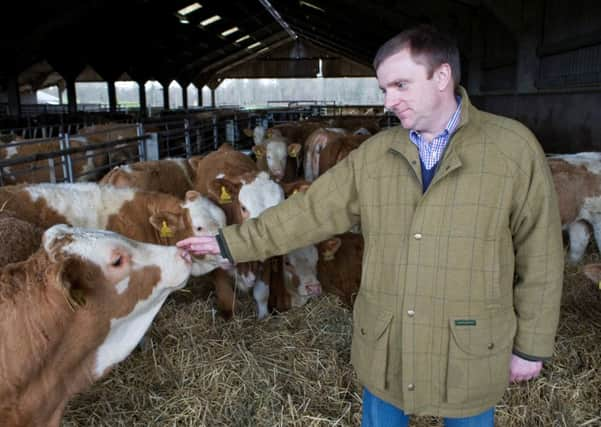Jim McLaren forecasts better times for livestock sector


The chairman of Quality Meat Scotland (QMS), Jim McLaren, said he was acutely aware of the frustration being felt in the supply chain, in particular by livestock farmers whose cash-flow has been hit by a combination of reduced and late support payments along with some of the lowest farm gate prices experienced in several years.
“Without question, this is a disheartening time for many hard-working Scottish livestock producers but I would urge farmers not to lose sight of the long-term opportunities which lie ahead for our industry,” he said.
Advertisement
Hide AdAdvertisement
Hide Ad“What we offer from Scotland could not be more different to what is produced by the majority of our overseas competitors.”
McLaren listed some of Scotland’s unique selling points in a world where he claimed there was growing demand for quality, sustainably-produced red meat.
“We have beef and lamb which benefits from our whole life quality assurance schemes and full traceability,” he said. “It is free of growth hormones and is produced using systems where any use of antibiotics is carefully controlled.”
Scotland’s red meat industry was also, unlike some competitors on the world stage, based on grass and forage-based production methods and did not divert water from human consumption.
Turning to the market, he claimed it was essential that a larger share of the retail value found its way back to the primary producer.
If it did not, he believed the long-term availability of lamb and beef could be under threat.
He advised producers not to be too focused on the price they received for their animals lest they lost sight of other opportunities to improve their profitability.
“While there is no doubt that the pence per kilo received is the source of the greatest frustration to farmers, the reality is it is one of the areas over which producers have least control, assuming they are producing animals to the specification the market needs,” he said.
Advertisement
Hide AdAdvertisement
Hide AdHowever, he said farmers could look at opportunities to improve profitability by concentrating on the areas over which they do have control such as making sure their end product is what their customers are looking for in terms of carcase weight and grade.
“We can also strive to improve our herd health status still further and make the most efficient use possible of grass, our industry’s greatest natural resource.”
Last year, McLaren headed up Beef 2020, a group which produced a range of proposals aimed at improving margins. One of those was the development of an integrated and accessible database.
“The Scottish Government’s new beef efficiency scheme is the central mechanism for populating this database and I would encourage all producers of suckled calves to join this scheme,” he added.